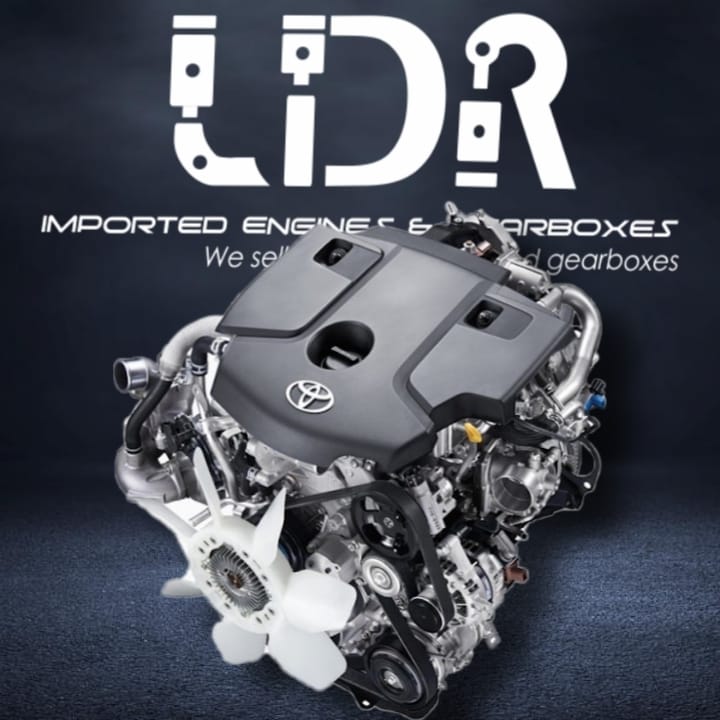Revitalize Your Automobile: Toyota Tazz Engine for Sale Currently Offered
Revitalize Your Automobile: Toyota Tazz Engine for Sale Currently Offered
Blog Article
Engine Acquiring Expert Tips on Choosing the Right Engine for Your Details Needs
Selecting the right engine for your specific needs entails a complicated interplay of aspects that go beyond plain horse power figures. By delving into the ins and outs of power versus performance, examining fuel scores, and budgeting for long-term prices, one can truly optimize their engine choice.
Power Vs. Performance: Locating the Equilibrium

When selecting an engine, it is crucial to strike an equilibrium between power and effectiveness to meet your specific requirements properly. Power describes the engine's capability to produce power for propulsion, figuring out variables like velocity, towing capability, and total performance (Toyota Tazz Engine For Sale). On the other hand, performance associates with just how well the engine utilizes gas to generate power, influencing factors such as gas economic climate and ecological kindness
Accomplishing the right balance between power and effectiveness is necessary since an engine that is too powerful may eat excessive gas, leading to higher operating expense and unnecessary stress on the environment. On the other hand, an engine that focuses on effectiveness over power may lead to sluggish efficiency, particularly in requiring situations like lugging hefty lots or driving uphill.
To make an educated decision, consider variables such as your common driving problems, the intended use of the vehicle, and your personal preferences. By assessing your requirements and concerns, you can choose an engine that strikes the perfect equilibrium in between power and performance, making certain ideal efficiency while reducing ecological effect and operating expenses.
Comprehending Engine Size and Kind

Additionally, engine kind plays a critical function in identifying the efficiency attributes of an engine. Usual engine types include inline engines, V engines, and rotating engines, each with its special advantages and drawbacks. The engine kind impacts aspects such as the engine's dimension, weight distribution, and power shipment. Understanding the interplay between engine size and kind is vital in picking an engine that straightens with your specific demands and concerns, whether it be power, efficiency, or an equilibrium of both.
Consider Your Vehicle's Requirements
If you are looking for an engine for a sturdy vehicle content that will certainly be made use of for towing, you will certainly require a powerful engine with high torque capabilities. On the various other hand, if you are picking an engine for a small car mainly made use of for city commuting, gas effectiveness might be a more important variable to consider.

Reviewing Fuel Performance Rankings
Analyzing gas effectiveness rankings is a crucial facet of selecting the appropriate engine for your vehicle, making certain expense financial savings and ecological sustainability. Fuel performance rankings, normally determined in miles per gallon (MPG) for fuel engines or kilowatt-hours per 100 miles (kWh/100 miles) for electric engines, indicate exactly how much an automobile can travel on a specific quantity of fuel or electrical power. Greater MPG or lower kWh/100 miles values represent a lot more effective engines, equating to decreased gas prices and lower carbon exhausts.
Furthermore, contrast different engine alternatives within the very same car class to determine the most economical selection. Aspects such as engine size, weight, aerodynamics, and hybrid or electric capabilities can all influence gas performance.
Budgeting for Long-Term Expenses
Strategically preparing for long-term expenditures is essential when choosing an engine, guaranteeing economic sustainability over the vehicle's lifespan. While the preliminary acquisition rate of an engine is a substantial aspect, it is crucial to consider the long-lasting costs linked with upkeep, repairs, and fuel consumption.
In addition, looking into the schedule and expense of replacement Related Site parts for the picked engine is important in spending plan preparation. By meticulously budgeting for these lasting expenses and factoring them right into the decision-making process, people can choose an engine that not only fulfills their prompt demands yet also stays cost-efficient throughout its life-span.
Conclusion
In conclusion, picking the right engine for your specific needs needs stabilizing power and effectiveness, recognizing engine dimension and type, considering your car's demands, assessing fuel performance ratings, and budgeting for long-lasting prices. By very carefully taking into consideration these factors, you can make sure that you pick an engine that satisfies your needs and offers optimum efficiency for your automobile.
To better refine the choice procedure of an engine that strikes the optimum balance between power and performance, it is vital to dig into the ins and outs of recognizing engine dimension and kind. Engine size refers to the complete quantity of air and gas that can be pressed with the engine cylinders. Usual engine types include inline engines, V engines, and rotary engines, each with its unique benefits and downsides. Understanding the interaction between engine size and type is important in choosing an engine that lines up with your specific needs and top priorities, whether it be power, effectiveness, or a balance of both.
Gas efficiency scores, commonly measured in miles per gallon (MPG) for gas engines or kilowatt-hours per 100 miles (kWh/100 miles) for electrical engines, indicate exactly how much a lorry can take a trip on a particular quantity of fuel or electrical site power.
Report this page